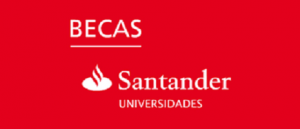Table of Contents
Call for Applications – Global Education Initiative Grants
The International Center for Not-for-Profit Law (ICNL) is pleased to announce a Global Education Initiative Grant to support the study of civil society law at universities and schools of law in eligible developing countries worldwide.
The 2021 Global Education Initiative will provide grants to support the integration of civil society law courses into the curricula of universities and educational institutions.
Grant amounts are not fixed, but successful grant applications have in past years ranged from $10,000 – $20,000.
ICNL works with governments, civil society organizations, and the international community in more than 100 countries to improve the legal environment for civic space around the world.
We believe that when people have the space to come together, positive, lasting change can be made.
To achieve this vision, individuals must be able to join together, speak out, and take action to make the world a better place.
For over twenty-five years, ICNL has worked hand-in-hand with our partners at all levels to promote and protect an enabling legal environment for civil society.
Our international staff includes experts in all aspects of the laws governing free association, assembly, and expression, spanning from the local to global contexts.
We also foster a worldwide network of organizations and individuals with in-depth expertise on a diverse range of issues relevant to civil society
ICNL is inviting written expressions of interest from eligible applicants who would like to create, refine or expand course material (or syllabus/syllabi or course modules) addressing the legal framework for civil society, civic space, and public participation, as well as civic freedoms and to integrate this material into the existing university curriculum.
If successful, ICNL will support the candidate in the preparation of syllabi and course materials. In exchange, the university agrees to integrate the course into its curriculum and to cover ongoing teaching costs.
The types of activities that ICNL can support include (but are not limited to):
The design of a course, module, or full curriculum relating to civil society law, including the plan for integration of this into the university structure;
The preparation of a course syllabus or syllabi;
The preparation of course materials (incl. lesson plans, lectures, discussion questions, activities, etc.);
The development of digital learning platforms and/or e-learning resources; Training for academics/professors on civil society law.
This list is merely illustrative and ICNL strongly encourages applicants with innovative ideas and approaches not described above to apply.
Application Instructions for Global Education Initiative Grants
To apply for a grant, applicants must submit the following items in English or Spanish:
- Application coversheet (see below);
- Proposal (no more than five pages);
- Resumes/CVs of leading project staff;
- Background information about the applicant organization and/or educational institution (e.g. website links or informational materials);
- Letter of support from the educational institution or institutions where the initiative will take place. Content of ProposalIn five pages or less, please describe your proposal for an education initiative on civil society law. The education initiative should relate to creating a course curriculum or module on civil society law to be taught in an educational institution in eligible developing countries. The proposal should address the following topics:♣ Why is this relevant to students in your specific location? Briefly describe the need for an educational initiative to promote civil society law in your particular country and/or region;♣ Applicant’s experience in teaching issues relating to the legal framework for civil society;
♣ The institution/institutions where the proposed course will be taught, the institution’s demonstrated support for this proposal, the proposed target group/student body, and the anticipated interest of this group in the suggested course;
♣ Existing civil society law educational initiatives within the host institution or at other institutions in the country where the initiative will take place. Where applicable, the plan for ensuring complementarity between the proposed educational initiative and existing initiatives;
♣ An overview of the proposed educational initiative, including, where appropriate, a description of proposed course materials, texts, syllabi, and lessons plans;
♣ A proposed activity plan with specific goals and a timeline for the development of the curriculum, recognizing that grant activities must be completed no later than November 30, 2019;
♣ Proposed tools for assessment of student learning outcomes, student engagement, and quality of course materials, as well as strategies for adapting course material based on assessment results;
♣ The sustainability of the proposed course i.e. plans to maintain the course as a permanent component of the institution’s curriculum beyond the Global Education Initiative grant support period;
♣ What is the potential for scaling the project? Describe how your proposed activities might be replicated in other universities or learning facilities in your country and/or region thereby extending the impact of the project.
Please also attach a line-item budget (which does not count toward the 5-page limit for the proposal).
Eligibility Requirements
The Global Education Initiative is open to any law professors, academics, and/or institutions located in countries currently listed on the DAC List of ODA recipient countries.
Selection Criteria
Applications will be evaluated based on the following factors:
♣ Compliance with eligibility requirements and application procedures;
♣ Demonstrated commitment of the applicant to promoting the study of civil society law;
♣ Quality of proposed project, including the innovativeness of the proposal, the proposed methodology/design, feasibility of the project (e.g. activities are targeted to achieve stated results, and anticipated results are realistic and attainable);
♣ The likelihood that the proposed project will advance the study of civil society law in the country or region;
♣ Sustainability of the proposed project beyond the grant period;
♣ Proposed budget and apparent value for money; and
♣ Inclusion of reasonable indicators to measure project success.
How to Apply
Interested applicants can apply by completing the application coversheet and submitting it, along with all required documents by email (see instructions below).
Terms of Reference
All grant recipients will be required to submit progress reports during the grant period and a final report on the use of funds, activities conducted, and outcomes of their projects prior to receiving their final grant disbursements.
All project activities must be completed no later than November 30, 2019.
Eligible Countries
Least Developed Countries: Afghanistan, Angola, Bangladesh, Benin, Bhutan, Burkina Faso, Burundi, Cambodia, Central African Republic, Chad, Comoros, the Democratic Republic of the Congo, Djibouti, Eritrea, Ethiopia, Gambia, Guinea, Guinea-Bissau, Haiti, Kiribati, Lao People’s Democratic Republic, Lesotho, Liberia, Madagascar, Malawi, Mali, Mauritania, Mozambique, Myanmar, Nepal, Niger, Rwanda, Sao Tome and Principe, Senegal, Sierra Leone, Solomon Islands, Somalia, South Sudan, Sudan, Tanzania, Timor-Leste, Togo, Tuvalu, Uganda, Vanuatu, Yemen, Zambia.
Other Low-Income Countries: Democratic People’s Republic of Korea, Zimbabwe
Lower Middle-Income Countries and Territories: Armenia, Bolivia, Cabo Verde, Cameroon, Congo, Cote d’Ivoire, Egypt, El Salvador, Eswatini, Georgia, Ghana, Guatemala, Honduras, India, Indonesia, Jordan, Kenya, Kosovo, Kyrgyzstan, Micronesia, Moldova, Mongolia, Morocco, Nicaragua, Nigeria, Pakistan, Papua New Guinea, Philippines, Sri Lanka, Syrian Arab Republic, Tokelau, Tunisia, Ukraine, Uzbekistan, Viet Nam, West Bank, and Gaza Strip.
Upper Middle-Income Countries and Territories: Albania, Algeria, Antigua, and Barbuda, Argentina, Azerbaijan, Belarus, Belize, Bosnia and Herzegovina, Botswana, Brazil, China, Colombia, Cook Islands, Costa Rica, Cuba, Dominica, Dominican Republic, Ecuador, Equatorial Guinea, Fiji, Former Yugoslav Republic of Macedonia, Gabon, Grenada, Iran, Iraq, Jamaica, Kazakhstan, Lebanon, Libya, Malaysia, Maldives, Marshall Islands, Mauritius, Mexico, Montenegro, Montserrat, Namibia, Nauru, Niue, Palau, Panama, Peru, Saint Helena, Saint Lucia, Saint Vincent and the Grenadines, Samoa, Serbia, South Africa, Suriname, Thailand, Tonga, Turkey, Turkmenistan, Venezuela, Wallis, and Futuna.
Deadline
Applications will be considered on a rolling basis until all grant funds are awarded. Applicants should submit their applications no later than March 29, 2022 Only shortlisted candidates will be contacted.
For more information and application details, see; Call for Applications – Global Education Initiative Grant


I am interested to apply for Global Education Initiative grant of 2021. However I am confused about the deadline for application, mentioned as 2020 on some document and as 2019 on the other. Therefore, which deadline is applied for the 2021 call
the deadline for this is March 29th 2021